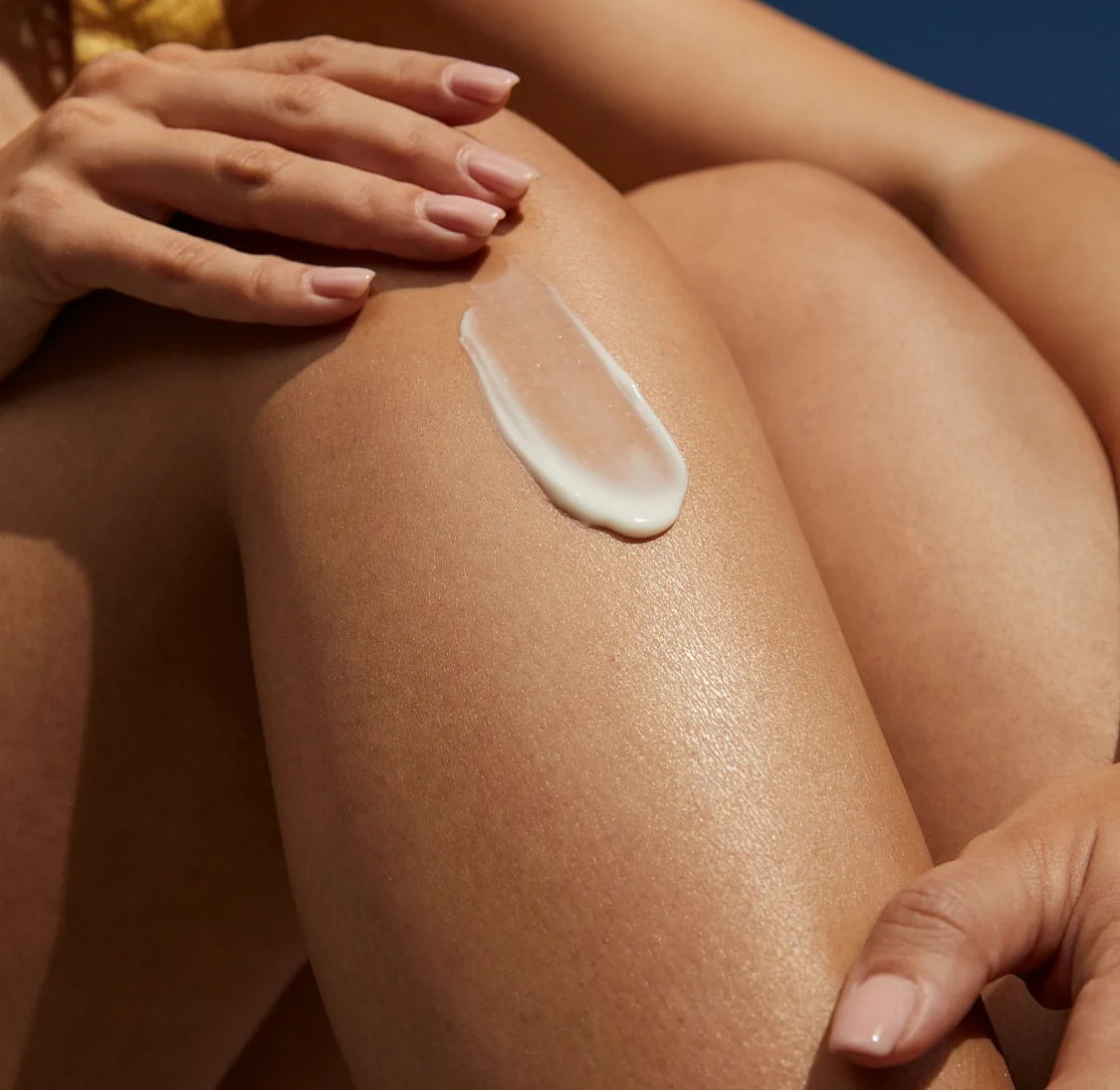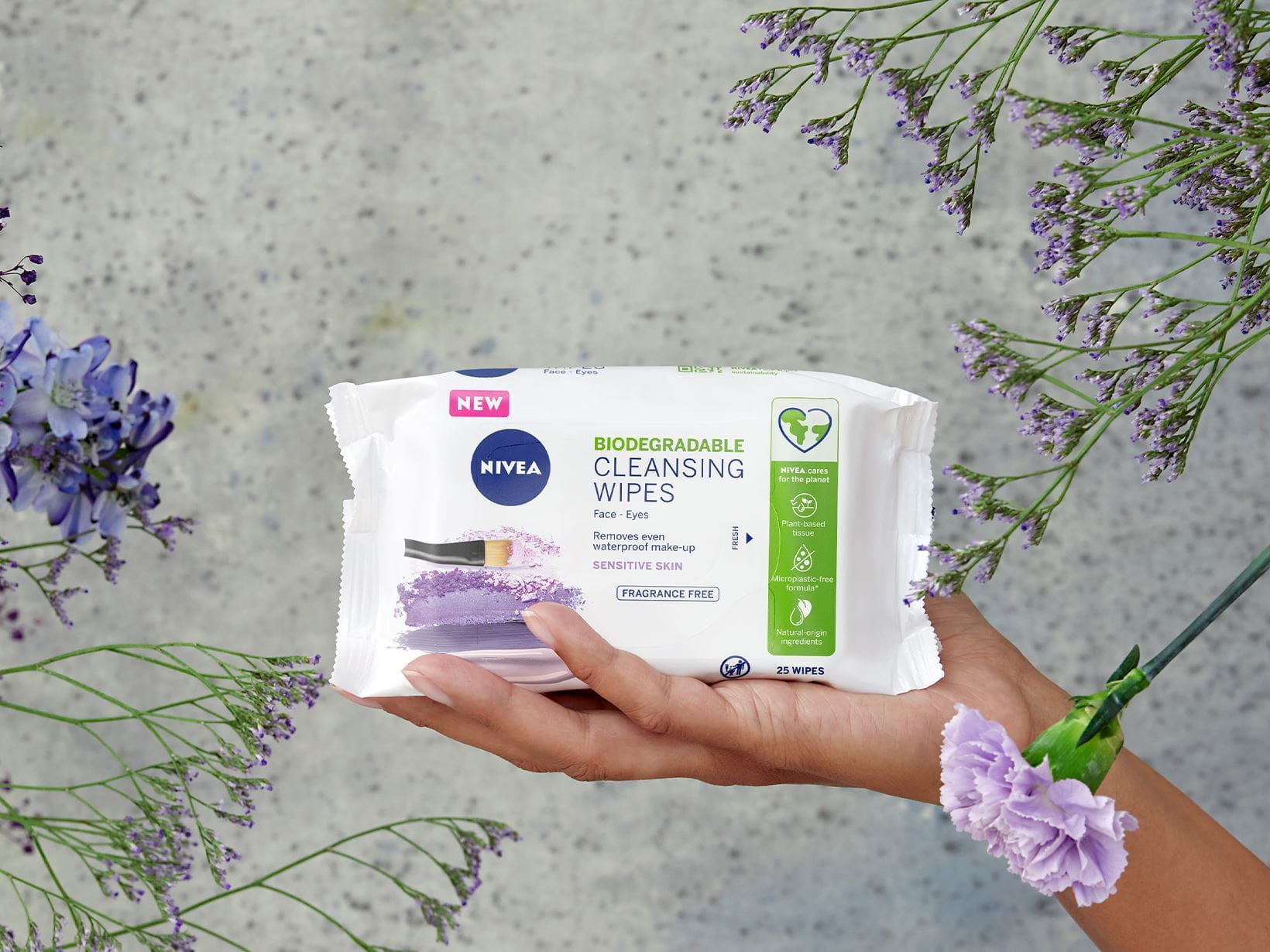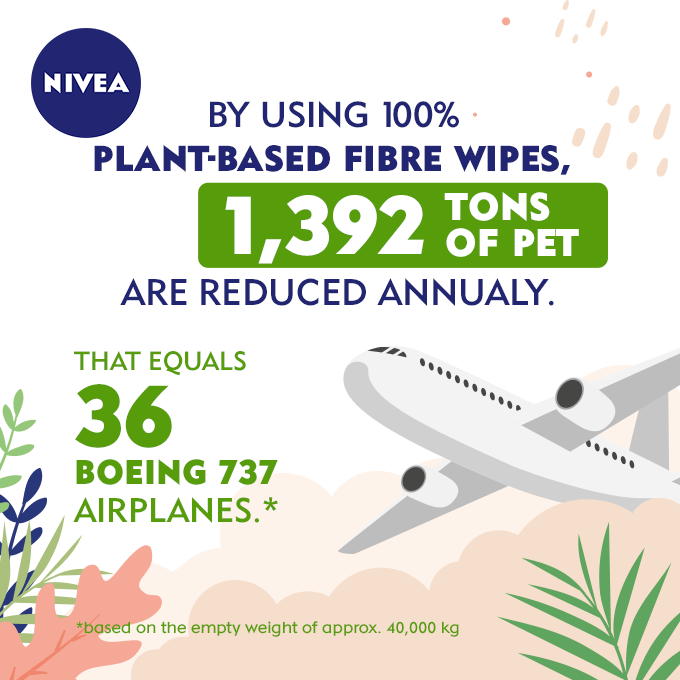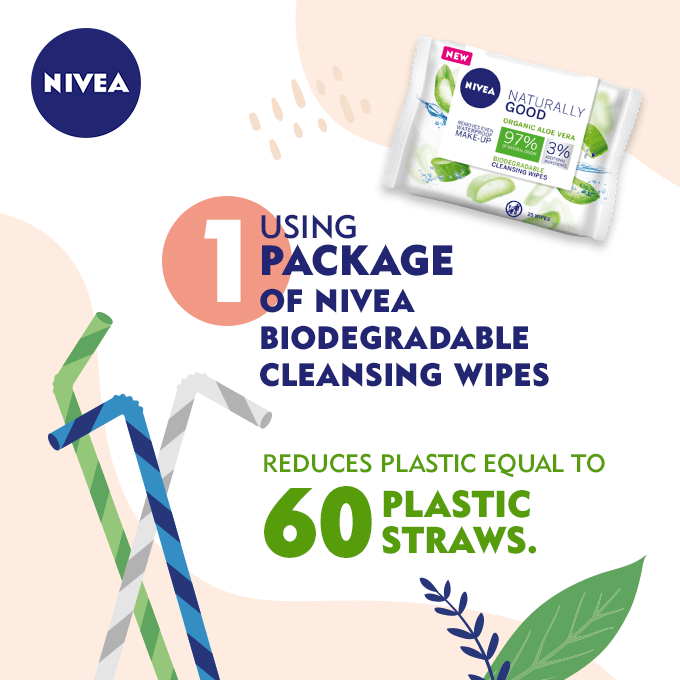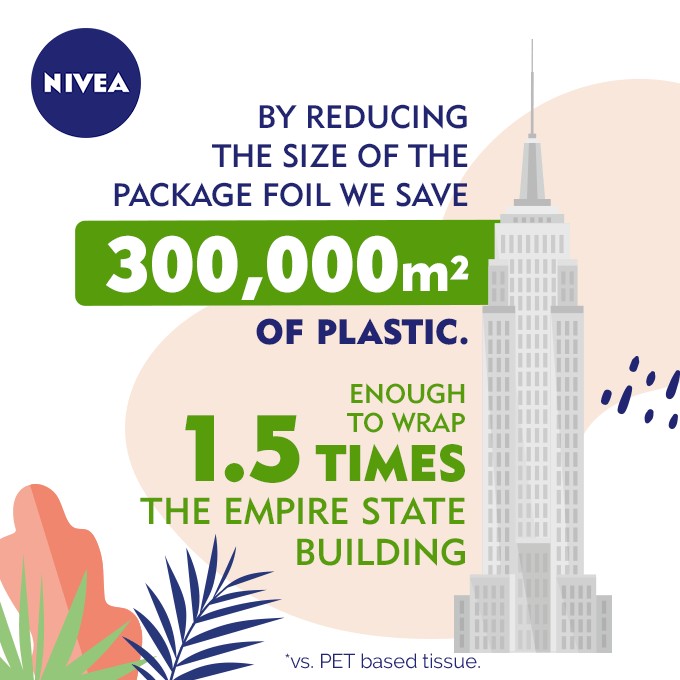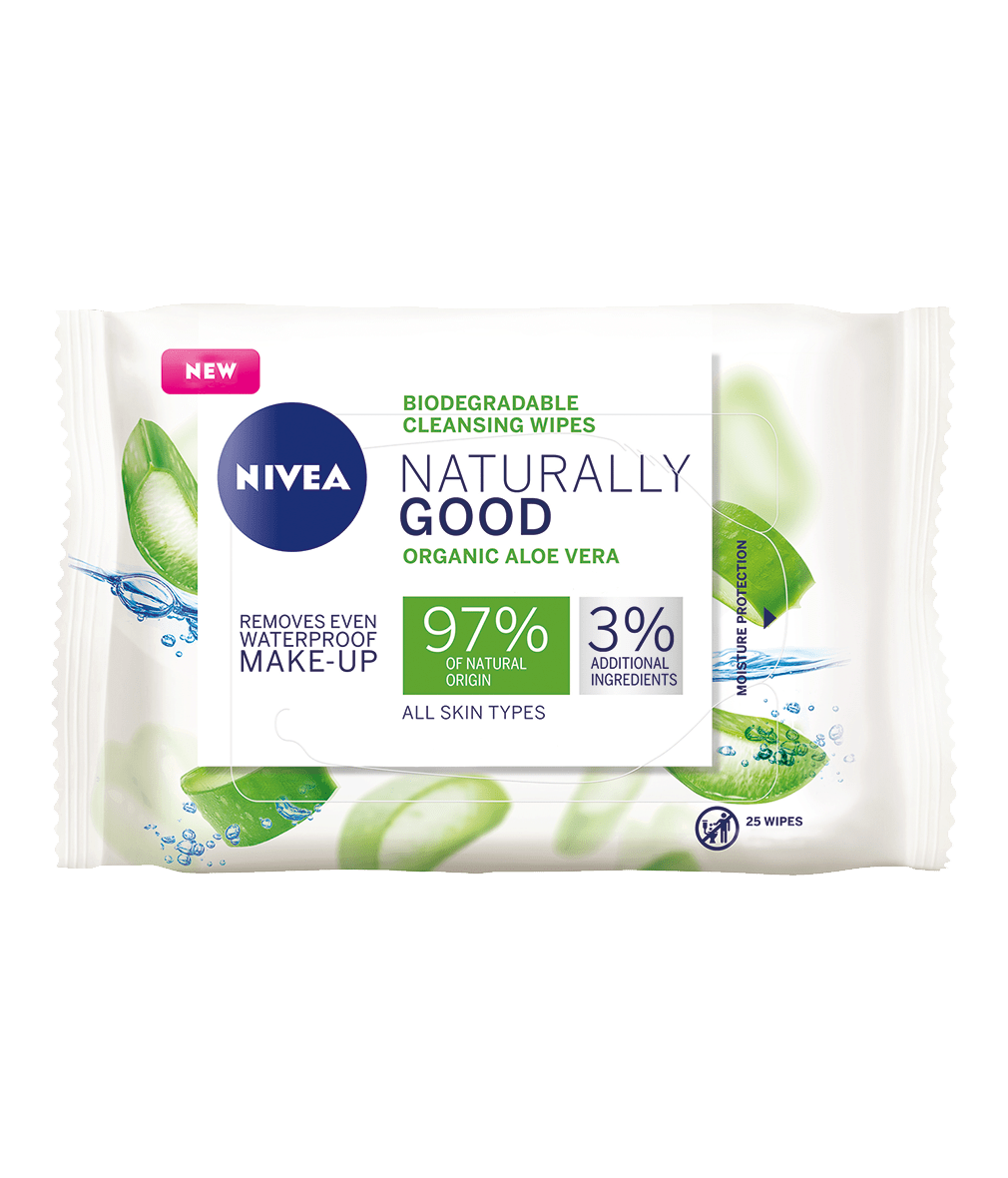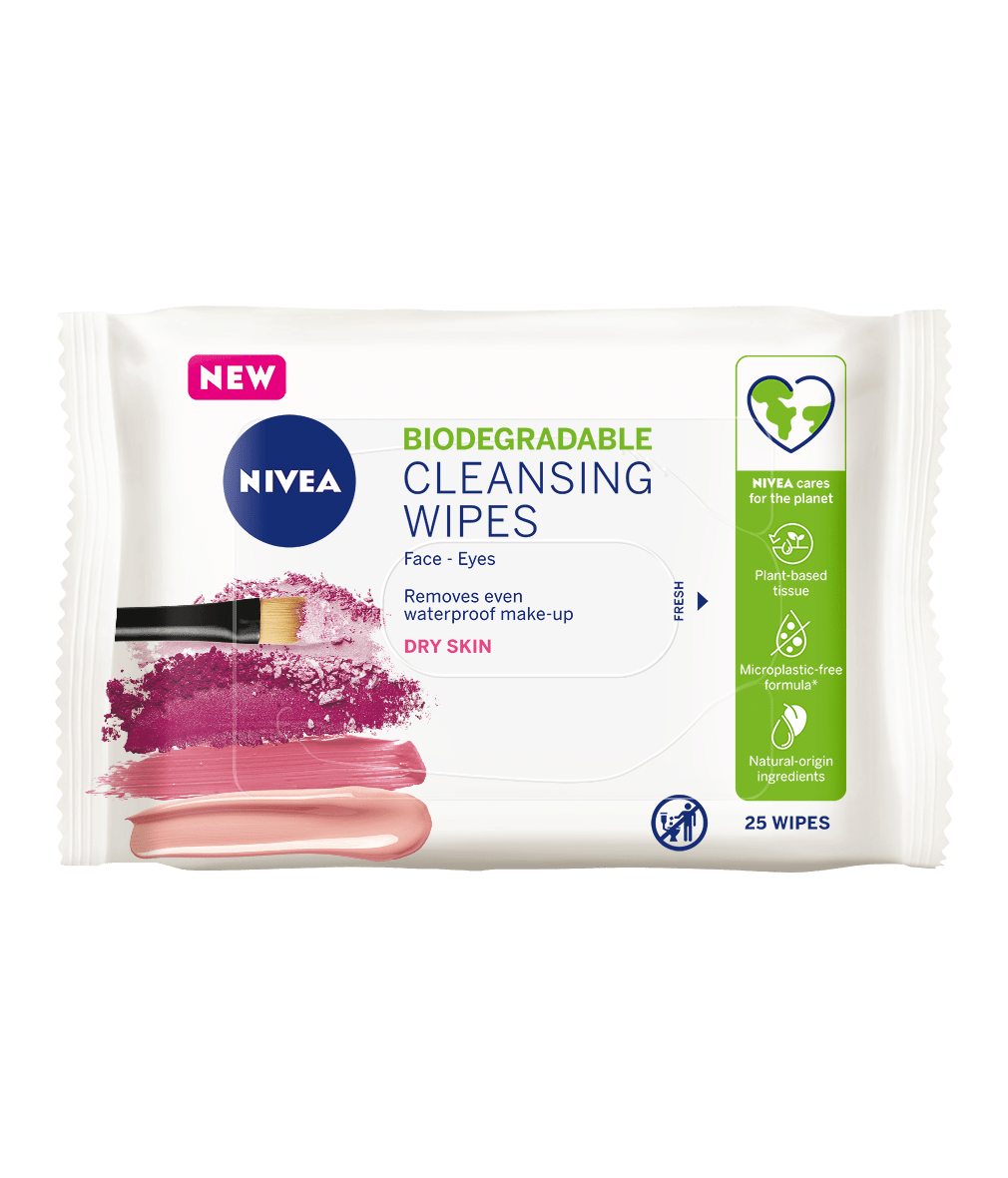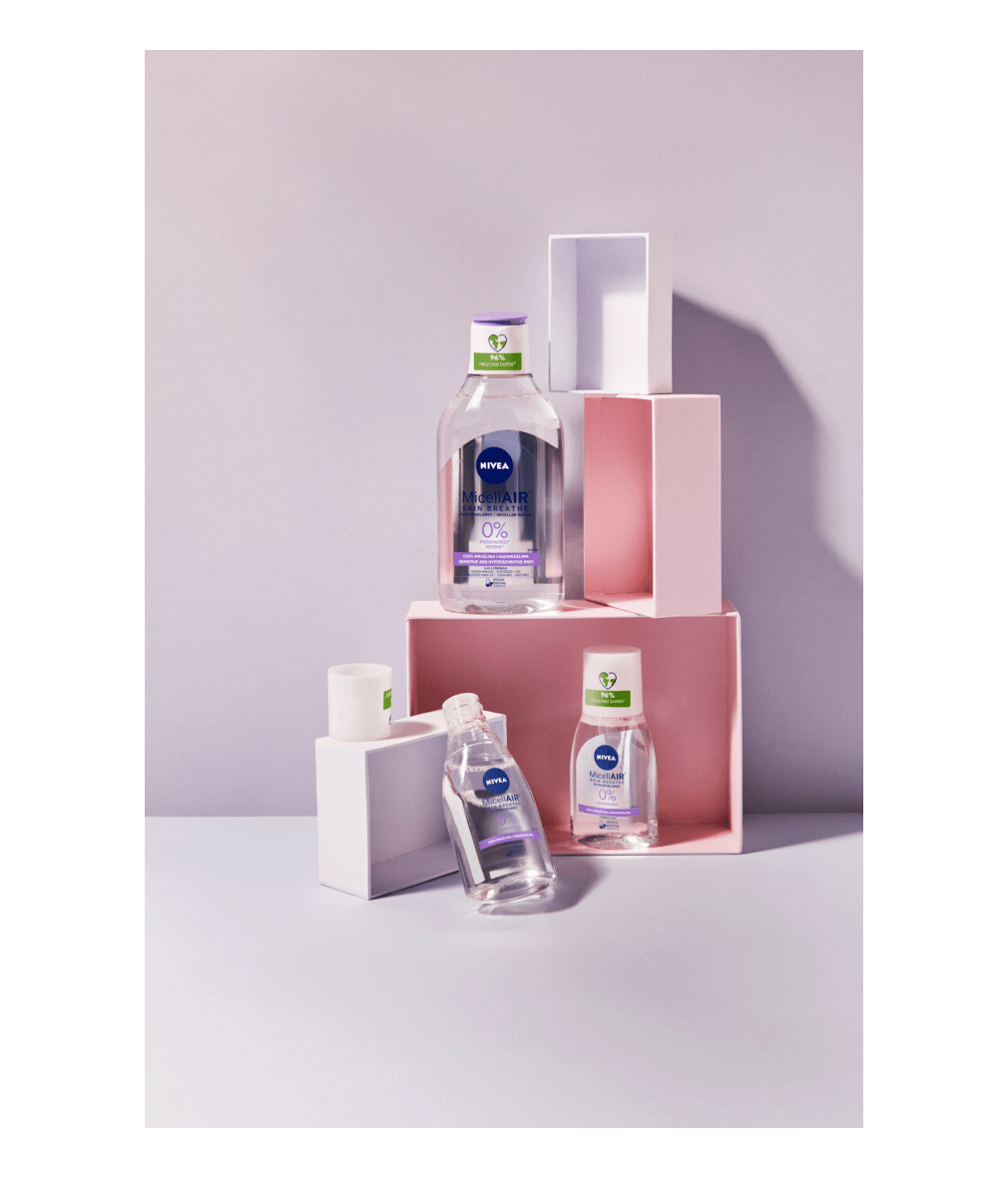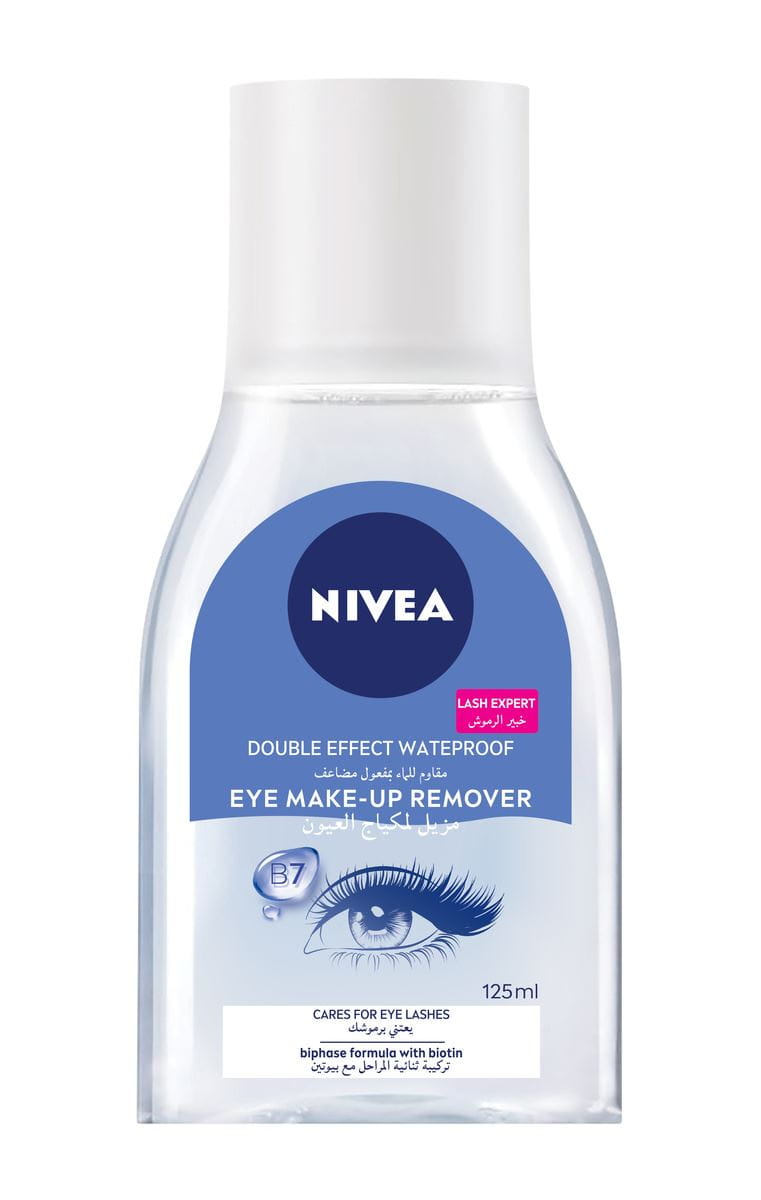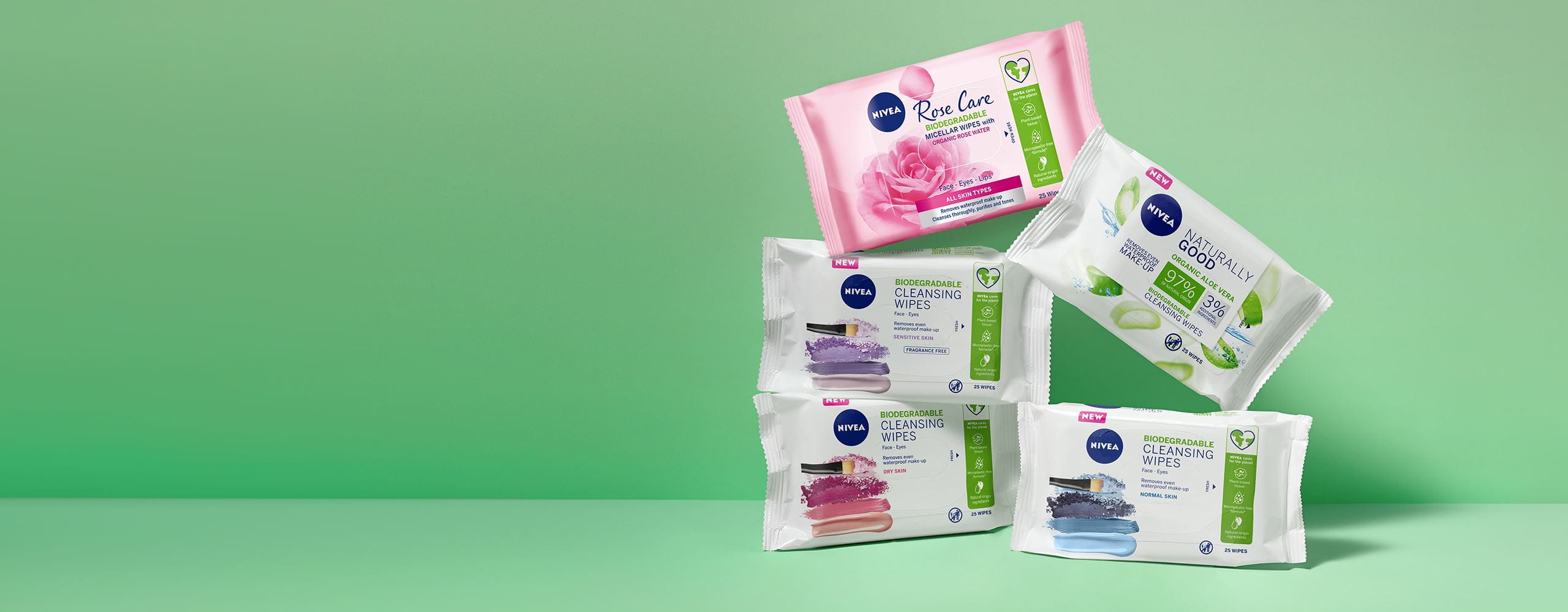
New NIVEA Biodegradable Cleansing Wipes
EASY TO USE, EFFICIENT, MORE SUSTAINABLE: BIODEGRADABLE WIPES
The NIVEA Face Cleansing Wipes have been a beauty favorite for more than 20 years. Now they got even better: a new formulation for a superior cleansing experience that is gentle to your skin – and to the planet.
WHAT‘S NEW ABOUT THE BIODEGRADABLE WIPES?
No residues – on the skin and in nature: To continuously reduce our environmental impact, we strive to use renewable & eco-friendly resources in our products as much as possible.

ABOUT THE PRODUCT
Which face wipes are biodegradable?
Easy cleansing goes green
INSIGHTFUL INTERVIEW WITH MAGALIE SIEKRO
We spoke to Magalie Siekro about the sustainability aspects of the new cleansing wipes.
ABOUT THE NEW NIVEA BIODEGRADABLE CLEANSING WIPES
You have further questions about the cleansing wipes? Here are the answers!
MORE SUSTAINABILITY INITIATIVES FROM NIVEA
At NIVEA we always strive for improvement and take responsibility. This is why we have launched various sustainability initiatives – from products with natural ingredients to almost completely recyclable packaging.
